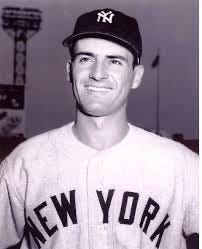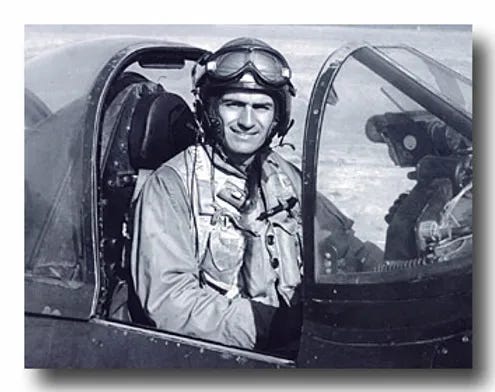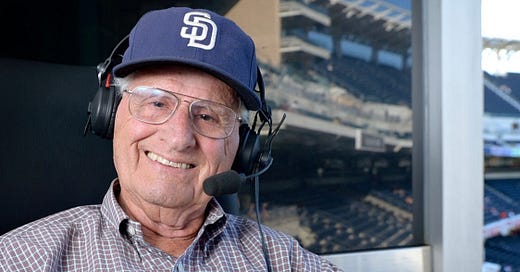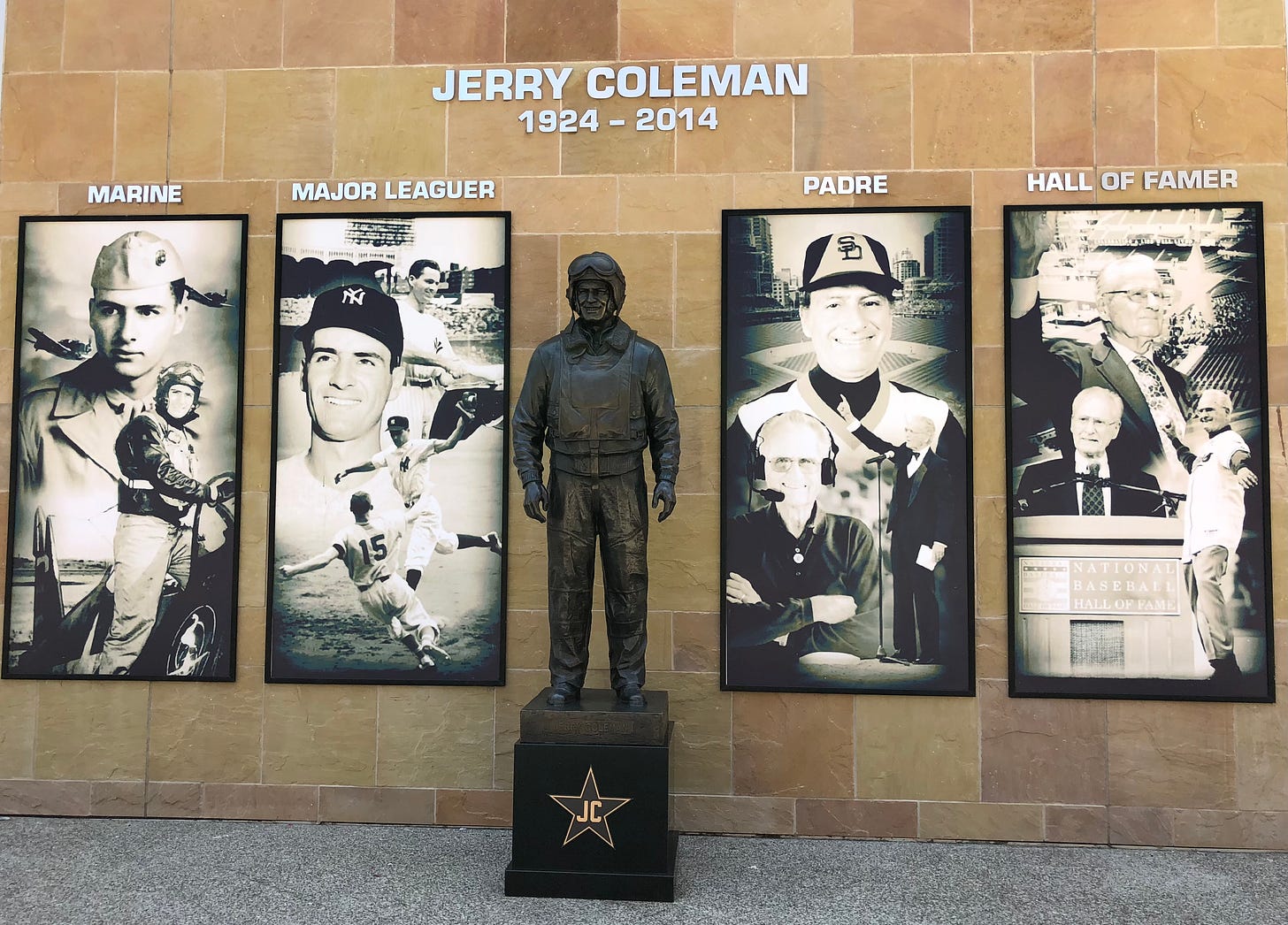A LOOK BACK: Remembering Jerry Coleman
Saluting a one-of-a-kind baseball man 10 years after his passing
Yesterday marked the 10th anniversary of the passing of Jerry Coleman.
I was privileged to work with Jerry during my time in San Diego, where I first served as the Padres’ director of public relations before transitioning into a broadcasting role in which I was honored to share a booth—and many a laugh along the way—with the Hall of Famer.
For those who don’t know Jerry’s story, I wanted to share a little bit of it in today’s VIEW FROM THE BLEACHERS, which is partly adapted from a piece I wrote upon his passing in 2014.
If Jerry Coleman would have done nothing but play for the New York Yankees, he would have lived an unbelievable life.
If he’d have done nothing but heroically serve the nation as a member of the Marine Corps in both World War II and Korea, he would have lived an unbelievable life.
If he’d have done nothing but spend more than 50 years in the broadcast booth, earning Hall of Fame honors along the way, he would have lived an unbelievable life.
Jerry did all of these things in a single unbelievable lifetime. He was also a loving husband and father and one of San Diego’s finest and most generous citizens.
As humble a man as you’ll ever meet, Jerry was beloved by all who knew him or— through the magic of radio—felt like they knew him.
I’m privileged to have called him a friend and mentor.
Of all the stories that define the man in my eyes, the first that comes to mind involves the last conversation I had with the Colonel.
Prior to the final game the Marlins played in San Diego in 2013, Dave Van Horne and I had lunch at a sit-down burger place in Petco Park that had come highly recommended. Our waiter couldn’t have been nicer. He was an older gentleman, and when he saw our credentials and realized we were in town to do radio for the Marlins, he said, “You must know Jerry Coleman.”
He went on to tell us how much he loved and admired Jerry. How he’d listened to him call Padres games forever. How no San Diegan’s star shined brighter than Jerry’s. He called Jerry his hero.
“I guess he’s not a burger eater though,” he said. “He’s never been in here. And in all my years following the Padres, I’ve never had the honor of meeting him.”
On my way back to the booth for the start of the game, I stopped by the Padres’ booth to say my customary last-day-of-series goodbyes. Before telling Jerry to take care of himself and that I’d see him next year, I told him the story of having just met one of his biggest fans. It was the kind of story Jerry probably heard on a near daily basis. And the way it rolled off his back, I wasn’t even sure he’d heard me tell it.
We said our goodbyes, and I might well have forgotten everything if the press box attendant didn’t bring a note by the booth in the middle of my post-game show later that afternoon.
It was from my waiter. He wanted to say thank you. His hero had stopped in to say hello that afternoon. He finally got a picture with Jerry Coleman.
That was Jerry.


An All-Star second baseman, Jerry played 9 seasons for the New York Yankees between 1949 and 1957. Playing for Casey Stengel—and as a teammate of the likes of Joe DiMaggio, Mickey Mantle, Whitey Ford and Yogi Berra—Coleman was a member of 5 World Series championship clubs. He was recognized as AL Rookie of the Year by The Sporting News in 1949 and was named MVP of the 1950 World Series.
During World War II, Coleman missed 3 minor league seasons while serving as a combat pilot in the Marine Corps with the VMSB-0341 Torrid Turtles. Having enlisted at the age of 18, he was stationed in the Solomon Islands and the Philippines and completed 57 combat missions, earning 2 Distinguished Flying Crosses and 7 Air Medals.
He later stepped away from the Yankees for nearly all of the 1952 and 1953 seasons to return to the service of his country, flying in Korea with the VMA-323 Death Rattlers. He completed another 63 missions and earned 6 additional Air Medals.
In total, he earned 2 Distinguished Flying Crosses, 13 Air Medals and 3 Navy Citations during the 2 wars and remained in the Marine Corps Reserves until retiring as a Lieutenant Colonel in 1964.
The only major leaguer to see active combat duty in both World War II and Korea, Coleman was inducted into both the Marine Corps Hall of Fame and the International Aerospace Hall of Fame.
After his playing career and a short stint in the Yankees’ front office, Coleman began his broadcasting career with the Yankees, partnering with iconic voices Mel Allen, Red Barber, Phil Rizzuto and Joe Garagiola.
He started a decades-long run calling games nationally for CBS Radio and, after working briefly for the Angels, joined the Padres’ radio team in 1972. Aside from the 1980 season, when he was asked to manage the ballclub, Jerry was the beloved voice of the Padres from 1970 through 2013.
His “Oh, doctor!” and “You can hang a star on that one!” calls became synonymous with baseball in San Diego, and he received the highest honor in Baseball broadcasting, the Hall of Fame’s Ford C. Frick Award, in 2005.
Today, Jerry Coleman’s name graces the broadcasting wing of the press box at San Diego’s Petco Park, where, in 2012, he was honored with a statue and a photo display commemorating his 3 distinct and remarkable careers.
10 years after his passing, Jerry Coleman remains a beloved and admired figure in San Diego and throughout Baseball.
And this weekend, in recognition of this sad anniversary, I hang a star for one of the most remarkable men I’ve known.
While you’re here…
Your feedback is always appreciated. Hit the “LIKE” button below if you enjoyed this post.
Learn more about one-on-one play-by-play coaching from Glenn Geffner via Zoom at glenngeffner.com.







Great story, Glenn. It’s particularly poignant at this time of the year when real baseball fans really miss the game. I’m old enough to remember Jerry both as a player and an announcer.--he was a great guy.
Yes, he was great. I enjoyed this piece. I knew that Ted Williams served in both wars but not in active combat in both. I didn't know Jerry had that distinction.